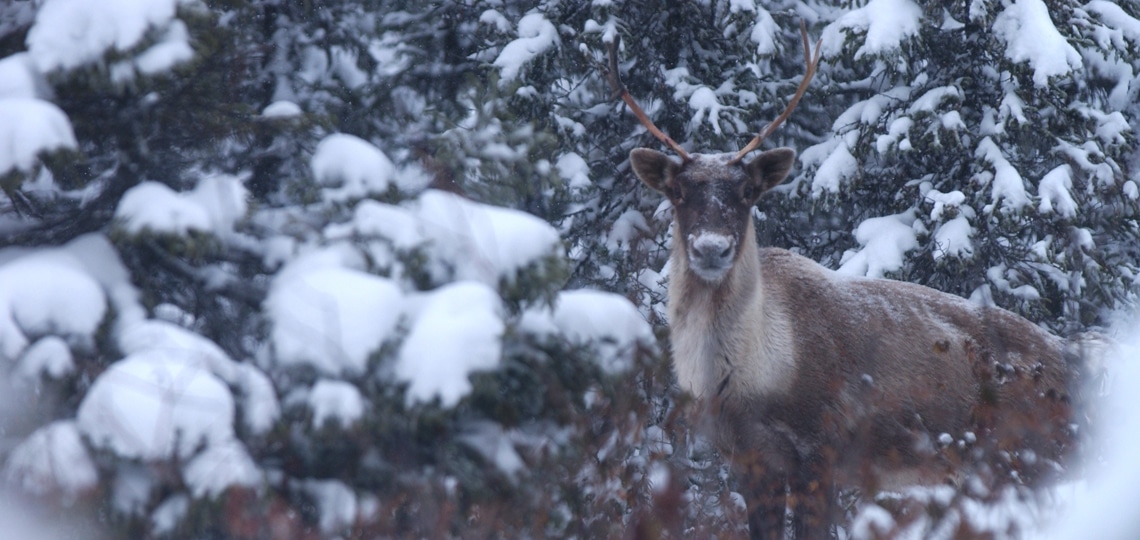OTTAWA/TRADITIONAL, UNCEDED TERRITORY OF THE ALGONQUIN ANISHNAABEG PEOPLE –
On April 20, Canada’s Commissioner of the Environment and Sustainable Development Jerry DeMarco presented five performance audit reports to Parliament. The reports demonstrate the intrinsic link between the dual climate and biodiversity crises and include a damning indictment of how Canada is falling short on the urgent action needed to tackle both. Environmental groups say this reinforces the need for urgent government action to protect at-risk species and the environment.
The federal Species at Risk Act (SARA) was a focus in two of the reports. An audit found that efforts by key government departments to plan and report on the recovery of at-risk species were slow and lacking. In more than four decades of monitoring, only about one in every five at-risk species had seen improvements in their status.
Important protection tools under SARA are rarely used, with the reports pointing out that no safety net orders have ever been issued. Only three emergency orders have ever been issued, and only at the formal request from stakeholders, backed by the threat of legal action. Environment and Climate Change Canada (ECCC) does not proactively assess whether such protections are needed unless prompted by external requests. Use of section 63 of the Act, which requires the federal government to assess whether provincial laws are effectively protecting critical habitat, is insufficient, says the reports.
The reports found ECCC, Fisheries and Oceans Canada, and Parks Canada were all experiencing large backlogs of progress reports on at-risk species intended to keep departments accountable. Without ongoing monitoring, there is no accountability for government action – or inaction – and opportunities to improve outcomes for species may be missed.
Environmental groups released the following statements in response to the reports:
Josh Ginsberg, lawyer, Ecojustice said:
“The CESD reports confirms what environmental groups have been saying for decades: the federal government is not fulfilling its legal duty to protect at-risk species. It has made no orders to protect species where provinces fall short and has instead made bad deals.
“The commissioner found that conservation agreements for boreal caribou lacked important measurable targets to protect critical habitat identified in federal recovery strategies. One year ago, environmental groups called out a conservation agreement for boreal caribou between the federal government and Ontario as being the ‘weakest in Canada.’ Now, a year later, little progress has been made in protecting critical habitat for boreal caribou in the province. The federal Environment Minister stated his intent to recommend a protection order for the species. He should follow through immediately.”
Corina Brdar, conservation policy and planning manager, Ontario Nature said:
“It’s obvious that a piecemeal, partisan approach to protecting biodiversity isn’t working. All levels and branches of government need to address threats to wild species and wild spaces. We can’t treat Northern Ontario like a treasure trove with unfettered resource extraction and keep our boreal caribou too.”
Dr. Julee Boan, boreal partnership manager, Natural Resources Defence Council said:
“The Environment Commissioner’s report found that, in the past 4 years, Canada has signed eleven conservation agreements for boreal and mountain caribou. Shockingly, none of these were designed to test if critical caribou habitat is being protected or if the protection measures in place are working. In Ontario, the most recent population surveys showed most caribou populations were declining, and these are now a decade old. Cumulative disturbance has only increased since then. If Canada and Ontario are truly committed to supporting caribou recovery, they will put a pause on more industrial disturbance in caribou habitat until new monitoring is completed. They have the legal tools, they have funds, they just need the political will.”

